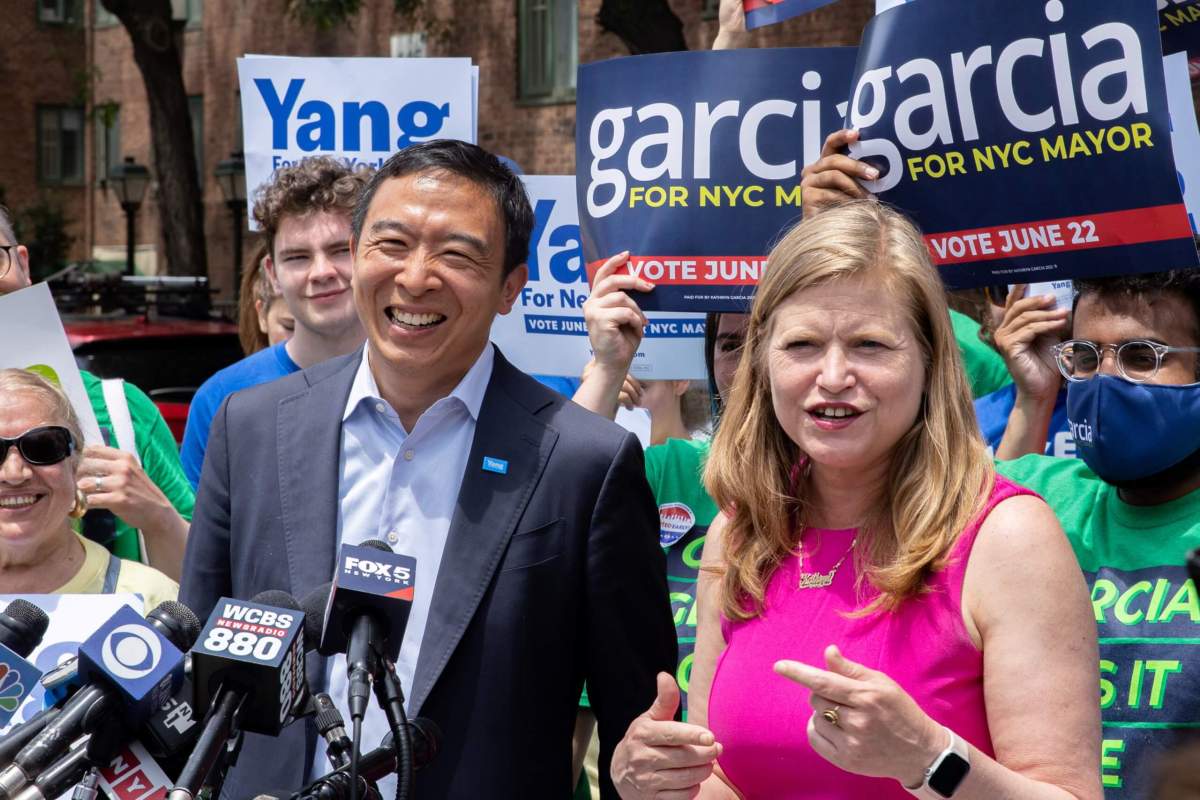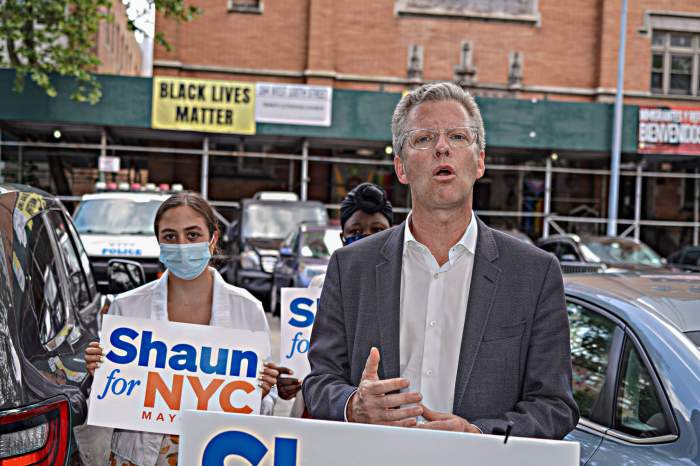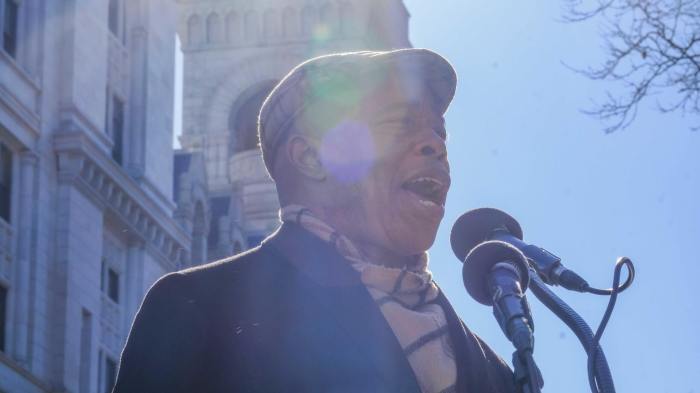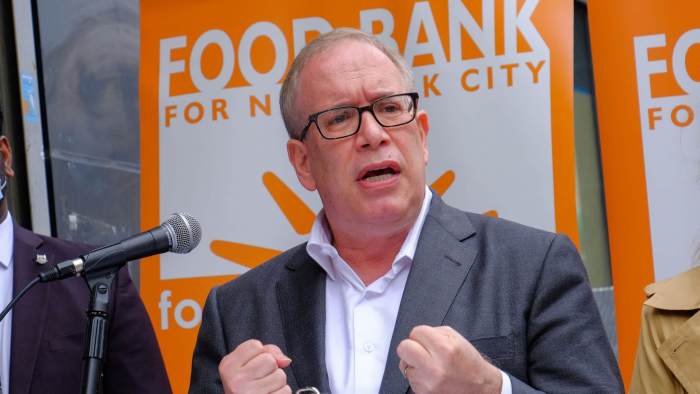The strategic alliance between mayoral candidates Kathryn Garcia and Andrew Yang, announced with less than 96 hours left in the contentious Democratic primary, set off an array of criticism from supporters of frontrunner Eric Adams.
Garcia and Yang campaigned together in Flushing, Queens on June 19 — a unique arrangement resulting from the inaugural use of ranked choice voting (RCV) in a New York City mayoral election. Despite past criticism for each other, the two candidates encouraged their respective supporters to include the other candidate on their ranked choice ballots.
Under the RCV system, each voter gets to select up to five candidates in order of preference. If no candidate secures a majority of votes on the first ballot, the ballots are recounted in individual rounds — with the candidate with the least support in each round eliminated. Voters who had their first candidate eliminated would then have their second-choice votes counted toward the candidate of their choice. This system of counting and eliminations goes on until one candidate has achieved a majority of votes.
But the Garcia-Yang alliance instead sparked complaints from Adams’ supporters who sought not only to spin the strange political fellowship as a conspiracy to derail the campaign — but also to blast the RCV system as a possible means to increase ethnic and racial divisions among the electorate. Polls show much of the Black and Latino electorate backing Adams.
“The 11th hour decision by Kathryn Garcia and Andrew Yang to combine their campaigns is a very disappointing choice that speaks to the inherent issues with Tuesday’s election being ranked choice voting. Whether this a clever campaign maneuver or being done to intentionally hurt another candidate, it is very harmful to the process,” said former Governor David Paterson on Saturday.
“It should be called out for what it is. It is not about a positive vision for our city; it is not driven by a desire to do what is in the best interests of New Yorkers. It is an act of political chicanery and introduces a very disturbing dividing of the city’s electorate and when these actions appear to be designed to hurt one particular candidate it can also divide the city on racial or ethnic lines,” he added.
Joining Paterson in slamming RCV and Garcia, who is white, and Yang, who is Asian, was a number of high-ranking Black and Latino elected officials.
“Latino and Black New Yorkers did not organize and fight for generations so that they could finally put a working class person of color in Gracie Mansion, just to then have their victory taken from them by a backroom deal. Both candidates should be ashamed of themselves,” said Bronx Borough President Ruben Diaz Jr.
New York (Manhattan) Democratic Party Chair Keith Wright said, “The collaboration between Andrew Yang and Kathryn Garcia could be looked at as voter suppression through the rank choice lens.”
City Council Majority Leader Laurie Cumbo (D-Brooklyn) called the Yang Garcia alliance a cynical game.
“In the eleventh hour of this election, two desperate politicians are ganging up to sideline the voices of Black and Brown voters through a ranked-choice process that many in our communities still don’t understand,” said Cumbo.
Before the officials’ comments, Adams had alleged that Yang and Garcia were playing racial politics aimed at preventing a “person of color” from winning the race.
Yang responded at a news conference, “I would tell Eric Adams that I’ve been Asian my entire life.”
To which Adams clarified that he felt Yang and Garcia were trying to prevent a Black or Latino person from becoming mayor.




































